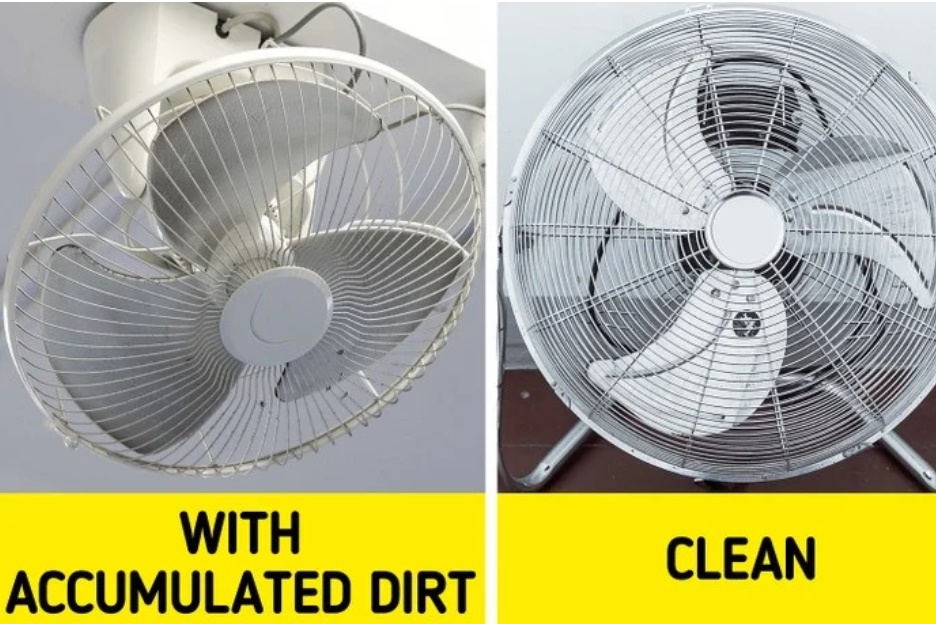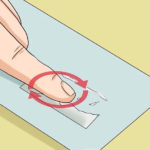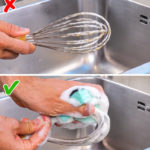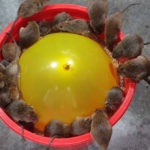Clean Surfaces
Surfaces like countertops, floors, etc. are prone to dirt and grime. You can simply mix baking soda and soap to use as a cleaning agent. Grate a bar of soap, simmer it with some water, add 2 cups of baking soda and 2 cups of soap until you get a homogeneous mixture. Let the mixture cool, add water to achieve the desired consistency, then pour it into a bottle. Remember to shake well before each use.
In addition to using this mixture to wipe off grease, eliminate odors, and clean countertops, you can also use it to launder clothes.
Remove Stubborn Stains
With appliances like electric kettles, after a period of use, they accumulate stubborn stains. To remove these residues, mix a cup of white vinegar and a cup of water, boil the mixture for a few minutes. Before reusing, thoroughly wash or wipe the appliance with a damp cloth.
Clean Fan without Removing It
Pour two tablespoons of baking soda, one tablespoon of liquid soap, and a cup of vinegar into a bowl, mix well, then apply the mixture to the fan. Next, use a completely covered bag and leave it on for 5 minutes. Afterwards, remove the bag and you will see all the dirt inside the bag.

Remove Build-up on Showerheads
To clean and keep the showerhead looking brand new, simply mix a cup of vinegar with half a cup of water, then soak the showerhead in the solution for a few hours. Afterwards, rinse thoroughly with water, and you will see the showerhead become shiny.
Eliminate Unpleasant Odors in the Washing Machine
After a long period of use, washing machines can develop unpleasant odors. If not cleaned, these odors can transfer to the clothes. The simple solution is to pour baking soda and water into the fabric softener compartment, then run a cleaning cycle.
Another method is to pour 2 cups of white vinegar into the washing machine, run a wash cycle with warm water. Once completed, wipe the inside with a damp cloth to remove all the dirt.
Get Rid of Odors from Trash Cans
You can use fabric softener as a remedy to prevent odors from household waste. Simply soak a cotton ball in fabric softener, then place it at the bottom of the trash can. Then, place a garbage bag and use the trash can as usual.
Clean Stains on Mattresses
Sweat and humid weather can cause stains on mattresses. If not promptly removed, they will become more stubborn.
If using soap does not remove the stain, pour hydrogen peroxide into a spray bottle and spray it evenly on the stain. Then, use a toothbrush to scrub. Use a damp cloth to wipe off the excess and apply a thin layer of salt to the area. Let it dry for 3-5 hours, then vacuum up the salt. That’s how you clean the mattress.
According to Khoevadep
3 Tips to Get Your Sofa Ready for Tet Celebrations
Preparing to welcome the Lunar New Year requires the task of cleaning the house – and the sofa. To clean your sofa effectively, check out the article by Dien May XANH for help!














